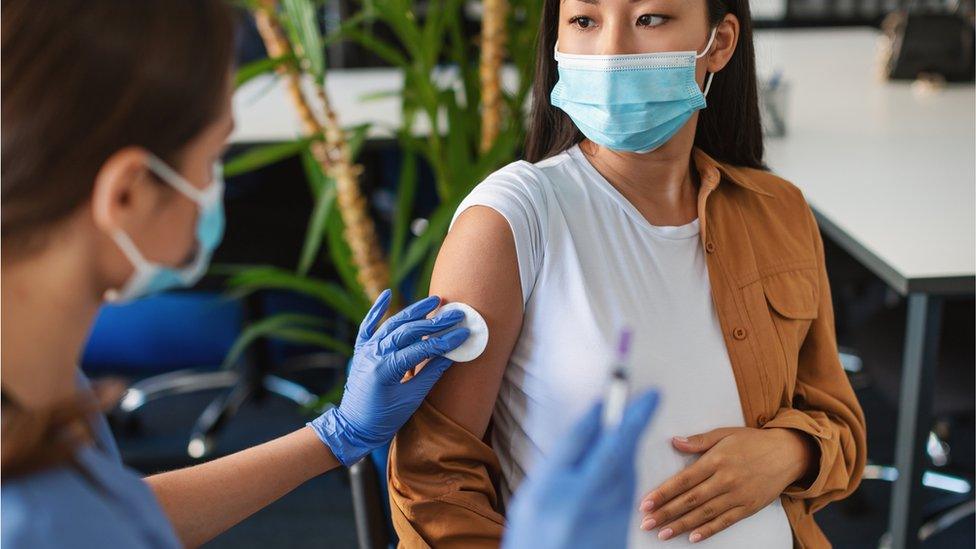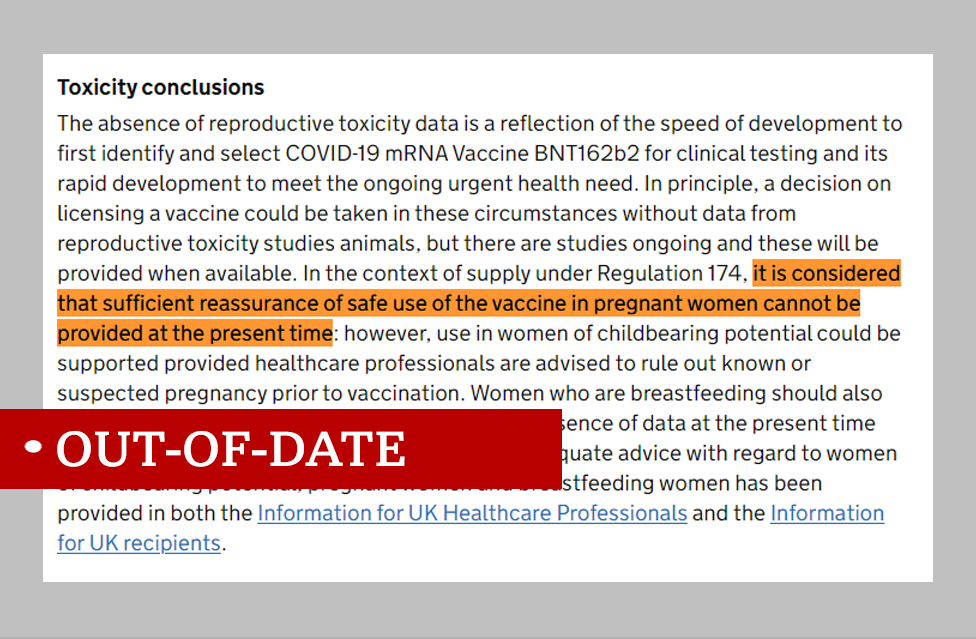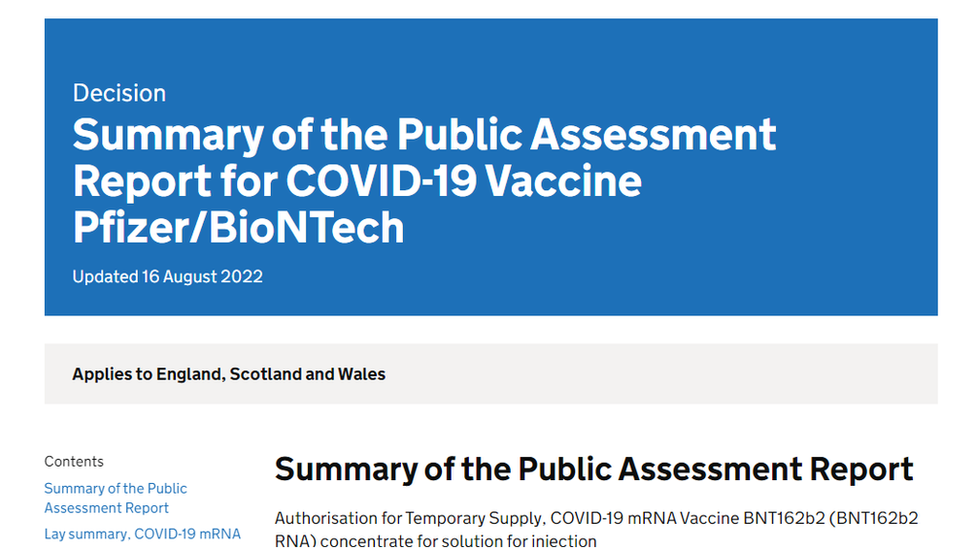Covid: Pregnant women targeted with false vaccine claims
- Published

Covid vaccination advice in pregnancy has not changed, contrary to false social media posts, UK health agencies have clarified.
Inaccurate messages shared by thousands claimed that pregnant or breastfeeding women were now recommended not to take the vaccine.
In fact, the NHS says the vaccine is both safe and strongly recommended for this group.
The misleading claim came from a now out-of-date document from 2020.
An out-of-context report
The document went viral after a Twitter user - whose account has since been suspended - shared a post stating incorrectly that the UK government had, "quietly remove[d] approval for use of Covid vax in pregnant and breastfeeding women".
She linked to a report from December 2020 which said, "reassurance of safe use of the vaccine in pregnant women cannot be provided at the present time", because of an absence of data and that, "women who are breastfeeding should also not be vaccinated".
This was true at the time, but since then data has been gathered finding no link between the vaccine and problems in pregnancy or birth.
In fact, the Covid vaccine seems to reduce the risk of still-birth and pre-term delivery.
And unvaccinated pregnant women are more likely to need hospital treatment if they catch Covid, especially in the third trimester.
This evidence led to the recommendation being changed - so the statement found in this report no longer stands.

Social media users seized on an outdated piece of advice from 2020
A Department of Health and Social Care spokesperson said: "Covid vaccines are safe and highly effective both for pregnant women and for those who are breastfeeding.
"This is backed by extensive real-world data, including global analysis outside of clinical trials and in healthcare settings."
Despite this, the misleading message that the advice had changed was picked up by several accounts with large numbers of followers.
A link to the outdated report was viewed across major social media platforms thousands of times, along with inaccurate claims including that the government had performed a "U-turn" and admitted the vaccine was "not safe for pregnant or breastfeeding women".
It was also shared in a number of other languages and countries and territories including Germany, Singapore, Hungary, Sweden, Bulgaria, Hong Kong, Poland and the US.
New timestamp
Part of the confusion appeared to stem from the fact that a different part of the same webpage had been updated on 16 August 2022, to include some information about boosters.

The government webpage housing the report had a new timestamp, causing confusion.
But the report about vaccine safety, which social media users highlighted this week, "was not updated", the UK's Medicines & Healthcare products Regulatory Agency (MHRA) confirmed.
"The text referred to in the social media posts...reflects our assessment at the time of approval for the vaccine," it said.
Since then, "new data has come to light" which supports the current advice in favour of vaccinating pregnant and breastfeeding women, an MHRA spokesperson said.
The MHRA, which manages the site, will look into making the page clearer, it added.
What we have learned since 2020
We did not have data at first, because pregnant women were not included in the original Covid-19 vaccine trials.
The NHS's Health Research Authority explains this is "usual...for new vaccine trials", because doctors are extra cautious about doing anything that could affect a developing foetus.
However, some trial participants became accidentally pregnant and, once the vaccine became publicly available, some received it without knowing they were pregnant.
This gave researchers a group of women they could study, who had the jab during pregnancy.
They did not seem any more likely to have miscarriages or other issues.
Then more research was able to take place.
In 27 studies, across eight countries, involving 316,470 women vaccinated while pregnant, no increased risk of miscarriage, still-birth, premature birth, low birth weight or babies with abnormalities was detected.
The UK's Joint Committee on Vaccination and Immunisation said it also used evidence from the US's V-Safe study, which followed more than 20,000 people vaccinated during pregnancy, external and found no safety concerns.
Why it's recommended you get the Covid vaccine if you're pregnant
Studies of tens of thousands of women, including in Scotland, external, Canada, external, Israel, external and Switzerland,, external found the same thing.
Analysis of safety reports that let anyone record anything that happens to them after being vaccinated - like the UK's Yellow Card scheme or the US's Vaccine Adverse Event Reporting System - suggests vaccinated women are no more likely to miscarry than those are unvaccinated.
However, premature birth and still-birth are more likely after a Covid infection.